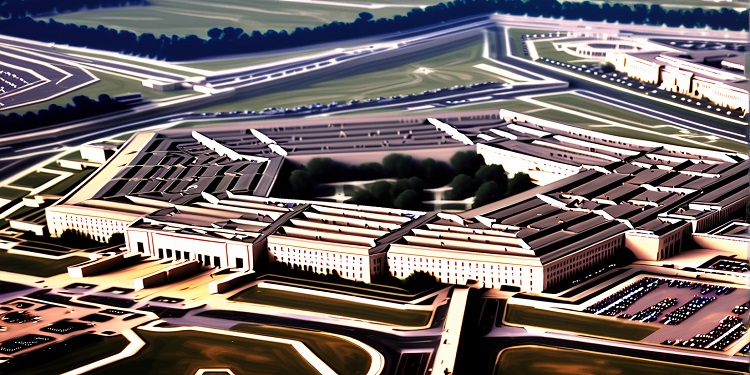The Pentagon is taking significant steps to refine its management of nearly $70 billion in military assistance to Ukraine, focusing on efficiency and accountability. The Army Materiel Command is playing a central role in this transition, overseeing everything from the manufacturing of artillery to the timely delivery of essential supplies.
In the past, U.S. military operations have been recognized for their logistical capabilities. However, evolving complexities in global military aid have highlighted inefficiencies in data management. Traditional tracking systems have struggled to keep pace with modern demands, prompting a shift towards advanced technological solutions. To address these challenges, military leaders are integrating innovations such as blockchain technology, which is expected to enhance the security and reliability of supply tracking while ensuring transparency among authorized personnel.
Integration of Blockchain and Artificial Intelligence
The application of blockchain technology is set to revolutionize the way military assets are monitored. By creating an immutable record for each shipment, blockchain provides an unalterable digital footprint for items, tracking them from U.S. storage facilities to their destinations on the battlefield. This approach minimizes reliance on outdated methods such as spreadsheet tracking and manual communication, thereby streamlining operations.
The urgency to modernize logistics has been further emphasized by geopolitical events, particularly following Russia’s invasion of Ukraine. In response, military leaders are also exploring the use of artificial intelligence (AI) for data analysis, aiming to gain deeper insights into logistical operations. AI is expected to enhance oversight by predicting supply chain disruptions and optimizing resource distribution, ensuring that essential military aid reaches its intended recipients without delay.
Strategic Implications and Market Trends
The adoption of digital solutions in military logistics signals a shift away from traditional record-keeping methods. As blockchain and AI gain traction, expectations are growing that these technologies will significantly enhance operational efficiency. In particular, blockchain’s security advantages reduce risks associated with data manipulation and unauthorized access, which are critical concerns in high-stakes military operations.
Despite its potential, the transition to technology-driven logistics presents certain challenges. Implementing these systems requires substantial investment in infrastructure and training for military personnel. Additionally, integrating new digital solutions with existing frameworks may pose temporary disruptions before full adoption is achieved.
Evaluating the Costs and Benefits
Investing in AI and blockchain technologies comes with financial implications, particularly in the early stages of implementation. However, defense budgets are likely to prioritize solutions that offer long-term improvements in accountability and efficiency. The cost of adopting these innovations is expected to be offset by the benefits they bring in terms of streamlined operations, reduced losses, and increased security.
Advantages:
Greater transparency and accountability in tracking military aid
Improved efficiency in logistical operations
Enhanced traceability of shipments
Challenges:
- High initial costs for system integration
- Ongoing training requirements for personnel
- Potential disruptions during the transition phase
- Key Considerations for Military Modernization
The shift toward technology-driven logistics raises several important questions regarding the future of military aid management:
How does blockchain improve military logistics?
Blockchain provides a secure, transparent method for tracking shipments, reducing the likelihood of errors and inefficiencies in the supply chain.
What challenges arise in implementing AI for military operations?
The integration of AI presents hurdles such as high investment costs, system compatibility issues, and the need for personnel training to ensure effective deployment.
How do these advancements impact international military partnerships?
By strengthening the reliability and efficiency of military aid, these innovations bolster global alliances, fostering greater trust and cooperation among partner nations.
As the Army Materiel Command continues to refine its approach, the future of military aid management appears to be shifting toward greater automation and precision. The ongoing adoption of AI and blockchain is expected to play a crucial role in ensuring that military assistance remains timely, secure, and effective in an evolving global landscape.



